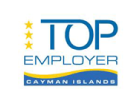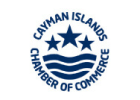Remuneration for Lawyers in Cayman
by Graham on January 29, 2020
Money isn’t everything, but when you’re considering relocating, remuneration is always going to be one of the first questions you think about so you can make an informed decision on if this will be the right fit for you and your unique situation.
For more information about what to expect as an offshore lawyer, please read our FAQ’s.
Myriad of Remuneration Structures
Unfortunately, the answer isn’t as cut and dry as you’d wish, as one of the noticeable features of the legal job market in Cayman is the myriad of remuneration structures that abound between the law firms operating here, which can make it difficult when advising candidates onshore as to what earnings they are likely to achieve should they choose to relocate and work here.
Typically the remuneration structure used by the large law firms in Cayman will fall into one of two camps:
1. A basic salary according to the individual’s level of post-qualification experience (ranging from circa $80,000 at the newly- qualified level right up to $250,000 at the managing associate level) plus either:
1. A percentage of fees billed and collected over certain thresholds (effectively commission).
2. Typically no commission is paid until a certain billing level is achieved and then higher percentages of the
2. A discretionary bonus based on a number of factors such as individual performance, contribution to the team, contribution to marketing, the overall performance of the firm. In some firms, this bonus may be subject to an upper limit and be equivalent to a fixed percentage of salary.
To make it even more complicated, some firms employ a variant on the two structures whereby they pay a basic salary plus commission on fees billed and collected over certain thresholds plus a discretionary bonus which is paid as a percentage of fees billed and collected over a certain threshold.
General Rule of Thumb For Remuneration for Lawyers
As a general rule, a UK lawyer coming to Cayman can expect to earn at least the same amount in dollars as they are earning in sterling in the UK but obviously, the big difference is that in Cayman they will not be paying any income tax. In some cases, earnings can be considerably higher than in the UK, even after taking the absence of income tax into account.
For example, high-performing associates at some large firms in Cayman can achieve total earnings of up to $500,000, or more, tax-free, which would attract envious glances from even Equity Partners at a lot of the mid-sized London firms and which are even comparable to earnings of junior Equity Partners at some of the very largest and most profitable London firms, since $500,000 tax-free is equivalent to some £500,000 gross in the UK.
Relocation Packages
By way of a relocation package, firms will typically pay for flights and the first month’s accommodation for the candidate and his dependants plus a sum towards shipping their goods to Cayman to help in the move. Benefits Package.
By way of benefits, packages vary from firm to firm, but candidates will usually as a minimum have half or all of their private health contributions paid by the firm, sometimes for their whole family, plus pension contributions equivalent to 5% of their salary paid by the firm at a minimum.
For more information about what to expect working as a lawyer in the Cayman Islands, please reach out to Graham Blyth at graham.blyth@cml.ky for a confidential conversation. If you’re considering which offshore jurisdiction might be best for you, check out our blog where we discuss some of the key differences between the main offshore jurisdictions that we recruit.
SHARE THIS ARTICLE
Recent Articles







